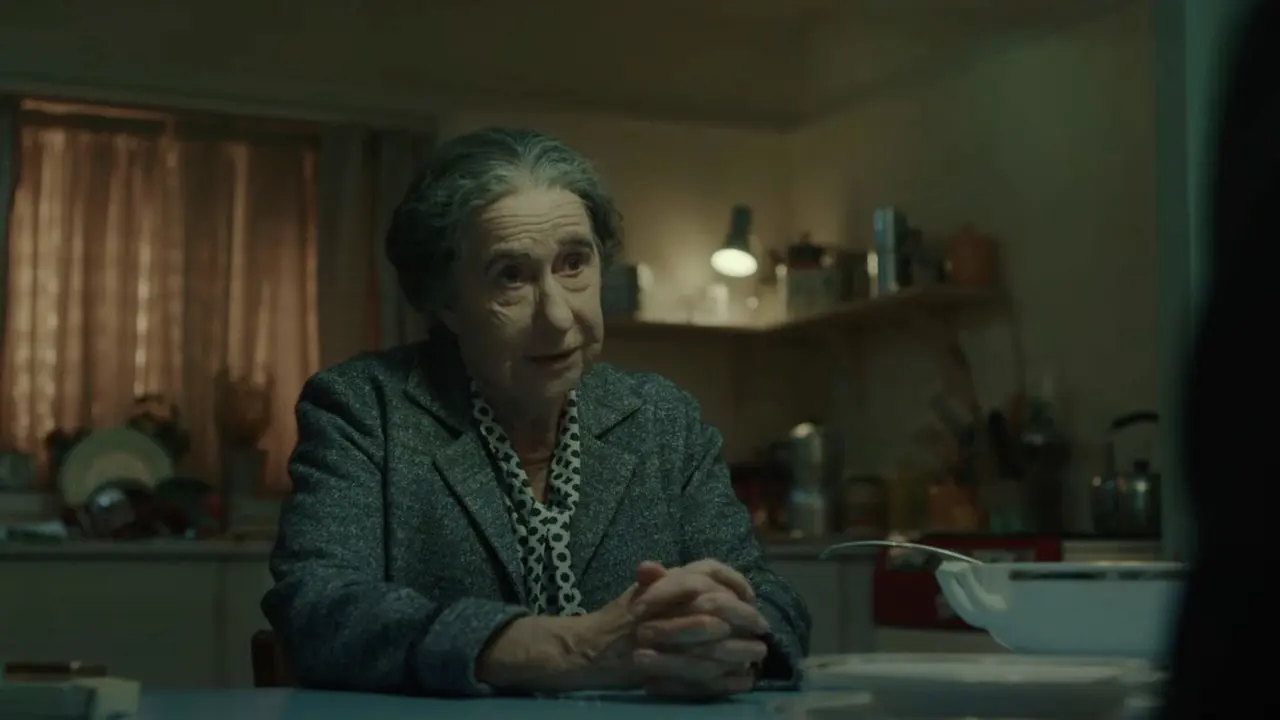Film Review: Golda
Film Reviews
Golda
Director: Guy Nattiv
Piccadilly Pictures and Embankment Films
In Theaters: 08.25
Political figures are second only to musicians when it comes to Oscar-bait biopics, and Hollywood was bound to get around to Golda sooner or later. It’s a shame it wasn’t later, as what we’ve been served up now is a sadly lackluster entry in a genre that has only ever been sporadically memorable.
Golda chronicles 19 days in 1973 known as the Yom Kippur War, during which Israeli Prime Minister Golda Meir (Helen Mirren, The Queen) is trying to hold together the still-young sovereign state as the Soviet and Egyptian armies fiercely attack it. Golda is faced with tough decision after tough decision, and she must contend with a skeptical cabinet, as well as a complex relationship with the United States, personified by Secretary of State Henry Kissinger (Liev Schreiber, Spotlight). As Golda struggles with poor health and doubt, she stays the course and follows her instincts, knowing that millions of lives and the future of the Jewish homeland hang in the balance.
There’s no question that Meir is a worthy subject for a film, and all of the necessary elements are present for an involving historical thriller. The obvious comparison is Darkest Hour, which won Gary Oldman an Oscar for his portrayal of Winston Churchill. Director Guy Nattiv is clearly trying to all but remake that film, from the story structure to putting the lead in gimmicky prosthetics that render them unrecognizable. Though the makeup job compares favorably, Nattiv shoots everything in closeups that at best accentuate how little Mirren can move her face and at worst make her look like she’s wearing a Jimmy Durante Halloween mask. The director is dealing with a severely limited budget, though it doesn’t hamper him nearly so much as the hackneyed and awkward dialogue by Florence Foster Jenkins screenwriter Nicholas Martin.
Golda‘s slapdash script is plagued with the kind of groan-inducing moments of 20/20 foresight we see in the worst historical films, such as when Meir comforts an ambitious General Ariel Sharon after his audacious plan meets rejection. “You’ll get your chance,” she tells him, “and for that, they will make you Prime Minister. Just remember—all political careers end in failure.” The intercutting between mediocre digital cinematography and archival footage is less than smooth, and the shoddy production values are more in line with a PBS television special from the ’80s than a major theatrical release. The short, plodding run time mostly features hand ringing, chain-smoking and endless conversations featuring the phrase “What does your gut tell you?”
Mirren gives a committed and commanding performance, and she does a fair impression of Meir, though none of this translates into giving us any insight as to who this woman was. This holds true save for one moment when Golda recounts a story from her childhood in Ukraine hiding from Cossacks, where we do get a glimmer of context for the person who has been thrust into this pivotal moment in history, and it’s too little and too much at the same time. When Mirren rages, “I am not that little girl hiding in the cellar!” the theatricality and melodrama are even more firmly on the nose than the prosthetics. Schreiber is well cast as Kissinger, yet the one scene he and Mirren have alone together quickly descends into unintentional camp. “Those Russians,” Golda sneers, “they brought nothing but misery to the world.” Kissinger nods, adding “On this I would agree with you. Of course, there is Tolstoy,” only to have Golda wittily retort, “And Dostoyevsky-misery on every page!” Martin seems to have crafted the scene while glancing through Wikipedia for information on Russia.
Golda has good intentions in trying to honor a major figure and capture a significant period in history, yet it misses out on every opportunity to make that chapter feel relevant and interesting. The major mistake here is the belief that important and interesting subject matter automatically makes for a good film, when in fact it merely heightens the need to deliver in the execution. –Patrick Gibbs
Read more historical film reviews here:
Film Review: Oppenheimer
Film Review: The Banshees of Inisherin
